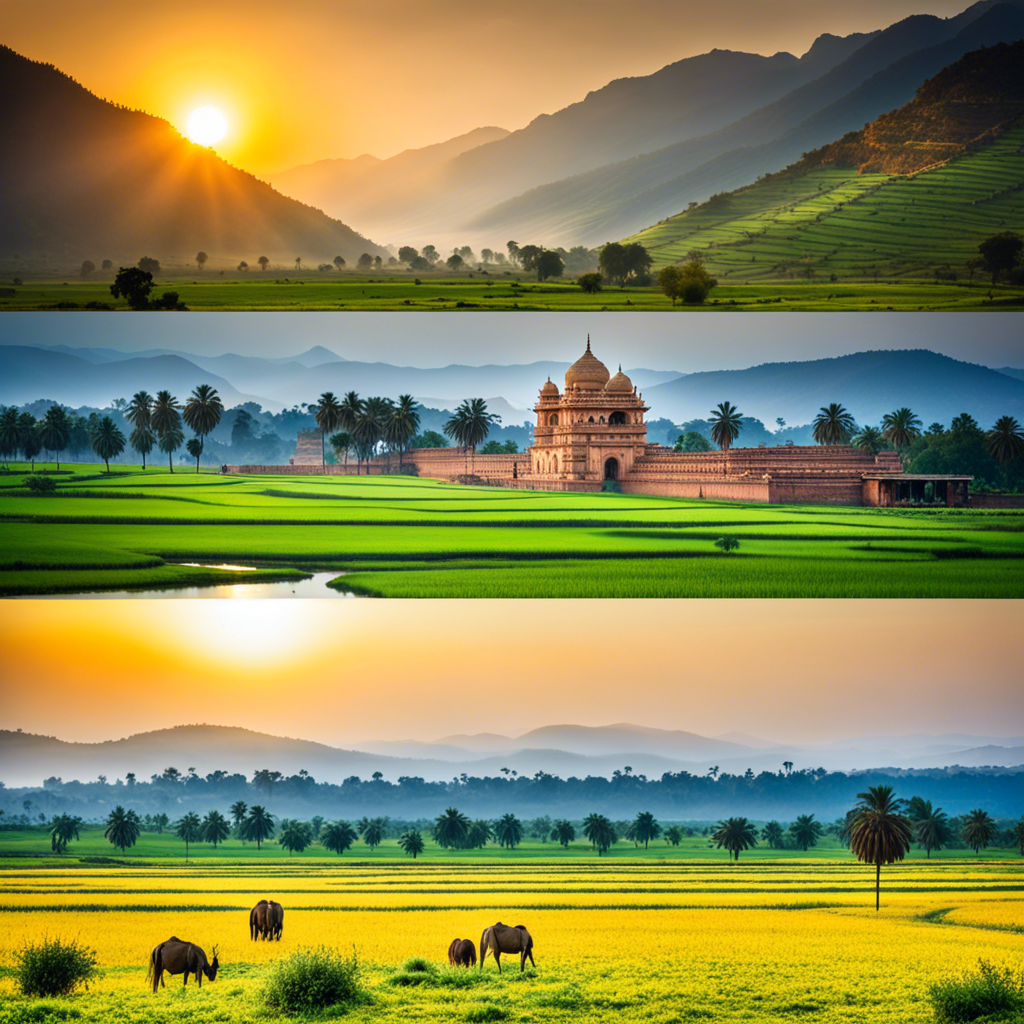Rahul Gandhi, a prominent figure in the Indian National Congress and a continuous political underdog, has launched a direct engagement with the public through a significant act: a 6,700km journey across 15 states. Setting off in January with his Bharat Jodo Nyay Yatra (Unite India for Justice March), Gandhi started in the tumultuous eastern region of Manipur with plans to end in western Mumbai by mid-March. His aim, ahead of a possible general election in a few months, is to rejuvenate the prospects of an opposition seen as fading.
This expedition is Gandhi’s second; he completed a similar journey last year, spanning over 4,000km from Kerala to Kashmir, where he engaged in impromptu speeches and voiced his concerns over India’s growing disconnect under Prime Minister Narendra Modi.
This time, Gandhi’s discussions are focused primarily on economic issues. Despite Modi’s praise for India as the fastest-expanding major economy worldwide, Gandhi highlights the struggles faced by farmers, lower-caste citizens, small entrepreneurs, and unemployed young people who feel neglected by the ruling Bharatiya Janata Party’s (BJP) strong Hindu nationalism.
Gandhi has also fiercely criticised the BJP on points considered to be the ruling party’s weaknesses, such as their close relationship with billionaires who have benefited from India’s economic growth, including Gautam Adani and Mukesh Ambani.
Amidst his trek, Gandhi addressed a crowd in Shajapur, asserting that a tiny fraction of the population controls the country’s wealth and power.
While Congress insists this journey is not part of any political campaigning, they admit that this is one of their best strategies to foster direct connections with the electorate, against the backdrop of the BJP’s commanding funding and media presence.
Gandhi, a member of the fourth-generation of the family that heads the Congress party, has been swarmed by enthusiastic supporters and greeted by roadside posters picturing him alongside his mother, Sonia Gandhi, and other party members. Despite suffering from knee issues during last year’s campaign and facing a packed schedule ahead of the general election scheduled for April and May, Gandhi currently travels across country in a red jeep.
Throughout his journey, he has underscored the restricted career options facing India’s youth due to various barriers, such as caste-based discrimination within government sectors and the military, the lack of easily available credit for small enterprises and reductions in military recruitment schemes.
Questioning the representation of socially or economically disadvantaged castes in management roles, Congress has pledged to legally guarantee apprenticeships for India’s youth in its upcoming election manifesto. Additionally, the party is advocating for a caste census to fully represent the predominant Indian demographic hailing from lower or socially disadvantaged castes and tribal groups.
Existing polling data predicts a firm lead for the BJP in the upcoming election. Nonetheless, Congress is positive that their appeal to marginalised voters could swing the vote in their favour. This is particularly the case in poorer, more densely populated northern regions, where the BJP is popular, and where opposition is attempting to curb the perception of the current prime minister’s invincibility.
However, the Congress party faces a tough battle against the BJP, which boasts substantial business support, a robust grassroots network, and a sturdy identity as the guardian of Hinduism. The 2014 and 2019 elections saw Congress losing seats to the BJP and enduring an exodus of members to the ruling party. The BJP is currently striving to secure a “supermajority”, with their allies, of 400 out of the 543 seats in parliament’s lower house.
Prime Minister Modi ridicules Gandhi as the privileged progeny of a party that was ousted from power partially due to endemic corruption. Jairam Ramesh, a Congress MP who accompanied Gandhi this week, referenced the congress’s 2004 victory under Sonia Gandhi’s leadership, in response to this adversity. Despite financial limitations, Ramesh remains hopeful, cautioning against dismissing the party’s potential based on current circumstances.
While visiting Ujjain, an important Hindu pilgrimage location, Gandhi condemned the “social, political and economic injustice” endured by disadvantaged Indians in a speech delivered to a large congregation.
At a camping event, Gandhi sat down with certified accountants, an endeavour to connect with those professional groups who are largely BJP supporters. They discussed taxation, small-scale trade, and Prime Minister Modi’s sudden immobilisation of the 500 and 1,000 rupee notes in 2016. The PM claimed this bold move targeted black money but it ended up causing economic upheaval.
In Gandhi’s perspective, this move was intentionally designed by Modi to destabilise small and medium-sized enterprises in order to transform India’s economy into one ruled by only a few monopolies, something Gandhi attested Modi was successful in achieving.
Some critics see Gandhi’s journey as a symbol of the daunting and tiring uphill battle the opposition is facing in an environment increasingly controlled by just one party. Unlike the BJP, which is solidified by being the world’s largest political party, the fate of Congress heavily relies on the appeal of its leadership, particularly the influential Nehru-Gandhi lineage that has given India three generations of prime ministers.
Congress’s incumbent president, Mallikarjun Kharge, is viewed as a shrewd political figure but is also recognised as being considerably influenced by the Gandhi family, who continue to hold significant sway behind the scenes. Gandhis have been characterised as the “glue” that holds the party together and Kharge’s appointment is believed to have roots in the family’s influence.
Despite the adversities, Ramesh, an MP, is optimistic about Congress making a comeback. There’s a growing concern and frustration among the public, and it is essential, he thinks, to make sure that a good majority of these individuals return to Congress’ fold.
– Copyright The Financial Times Limited 2024
– Tune in to our Inside Politics Podcast for fresh insights and dialogues.
– Subscribe to our push alerts to get the top news and commentary delivered straight to your phone.
– Join The Irish Times on WhatsApp to stay updated.

